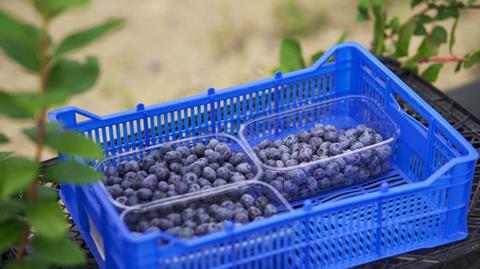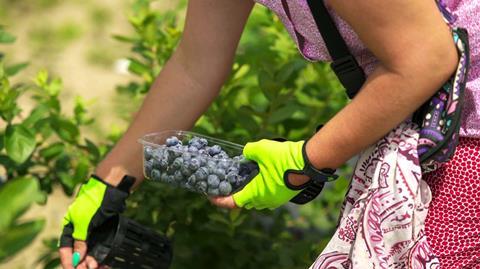Eastern European country could eventually supply more than 25,000 tonnes of the fruit to markets worldwide, says association president

Eastern European nation Georgia has the potential to export more than 25,000 tonnes of fresh blueberries to markets around the world by 2028, according to the head of its national grower association.
With a total production of more than 3,000 ha, blueberries have certainly become a strategic product for the country.
And following a successful export campaign in 2024, it is apparently ready to ship more than a thousand tonnes of fresh blueberries to markets in Europe and Asia in 2025.
Tornike Phanjavidze, president of the Georgia Blueberry Growers Association (GBGA) and CEO of leading producer-exporter Keystone Agro, has spearheaded efforts to establish his country as a competitive player in the international blueberry market.
According to Phanjavidze, whose own company operates a 200-hectare blueberry farm, GBGA’s 20 member growers cultivate a combined area of more than 1,000ha.

Around 80 per cent of that area produces mid- and high-chill varieties that can generate the larger, crunchier berries with superior shelf-life that many international markets now require.
The growers have successfully trialled premium varieties licensed from Sekoya and Fall Creek, introduced more efficient industry processes, and recently established a demo orchard in a higher-elevation area of eastern Georgia to extend their season until September.
The association’s collaboration with USAID has also played a vital role in helping to address production challenges, enhance local farmers’ expertise, and foster cooperation.
Together, the partners helped GBGA members to export more than 500 tonnes of blueberries to European and Gulf countries in 2024.
Just before the 2024 season, the association welcomed former Shota Tsukoshvili, former manager of USAID’s berry value chain programme, as its new CEO.
Tsukoshvili has emphasised the importance of putting Georgia’s blueberry industry on the global map, and his aim now is to make it highly competitive in international markets.
14.11.2024
Source: Fruitnet.com

